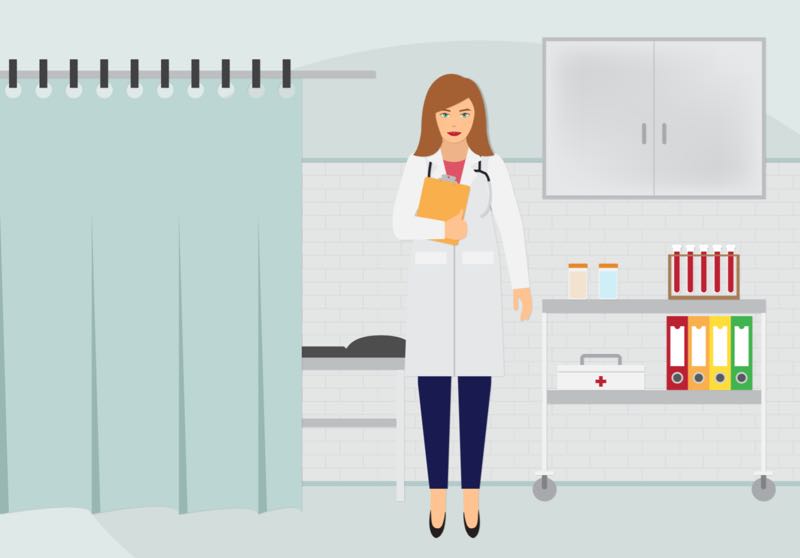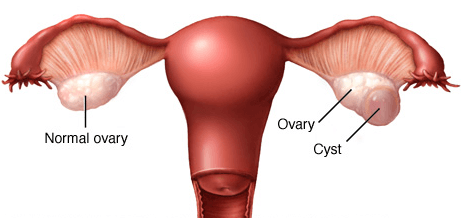Do you want to find out what causes ovarian cysts? Let’s start by reassuring you that most are benign. That means, most are a non-issue. An ovarian cyst is a sac, usually filled with fluid, a developing egg or benign tissue. ‘Benign’ means harmless and not a threat to your health. Most women have one or a few cysts at any time during their fertile years. Most cannot feel when an ovarian cyst is present. However, some ovarian cysts can persist and grow very slowly in size.
Ovarian Cyst Symptoms
If you are experiencing a lot of pelvic pain, weight gain, unusual hair growth, irregular or missed periods, you need to talk to your GP. Your GP can refer you to the gynecologist if required. Because the symptoms can vary from woman to woman, an ultrasound and blood tests are usually required to identify if the problem is abnormal ovarian cysts. The good news is very few ovarian cysts are cancerous.

Ovarian Pain
In rare cases, the sacs of fluid have problems during one point or another in their cycle of enlarging and then getting reabsorbed into the body. Women may notice one side of pain for a short duration of time. Book an appointment with the GP right away if there extreme pain, recurring pain, or unusual menstrual patterns.
Hormones and Ovarian Cysts
Remember that most ovarian cysts are spontaneously occurring. However, there are some hormones that can cause cysts to form. Some hormonal contraceptive agents can lead to the development of ovarian cysts. They can also be an unexpected problem as a side effect of some breast cancer therapies – or even fertility treatments. To be sure, you need a medical professional to determine the cause of unusual ovarian cysts. If you have concerns, start with your GP.

Differences Between Ovarian Cysts and PCOS
Polycystic Ovarian Syndrome (PCOS) is an abnormal condition. The hormones in the body are out of balance, and the ovaries grow many follicles and appear ‘polycystic’. PCOS may appear after puberty with symptoms over the years including weight gain, insulin resistance, and male hair growth. Read more about PCOS and how it is treated here.
Useful links
Want to know more about Ovarian Cysts? Click here to read more information.
